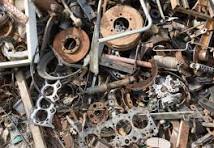Description
Steel is an iron-based alloy, which might contain carbon, silicon, manganese, and other minerals. The process of steelmaking involves the production of steel from iron ore and/or scrap. Due to its high durability and malleability, steel is a preferred choice of raw material in a number of industries like the manufacturing, automotive, and consumer products industries.
Rebar, also known as reinforcement steel as well as reinforcing steel, is a steel bar or grid of steel wires used as a tension machine in reinforced concrete and reinforced masonry structures to enhance and assist the concrete under tension. Concrete has increased compression strength but a weak in tension.
Rebar markedly improves the strength of the structure. The surface of the rebar is commonly “deformed” with ribs, lugs, or indentations to establish a better bond with the concrete and lower the risk of slippage.
It is generally made from stainless steel, carbon steel, sheet metal, glass-fiber, epoxy, welded wire fabric, and galvanized reinforced polymers, phosphorus, carbon, iron, manganese, and sulfur.
Steel rebar is generally of such size or shape that it can be quickly situated and bent in concrete to produce a monolithic structure. It decreases the chances of crack formation, has excellent resistance, decreases spalling joint edges, and is strong and durable.
The global steel rebar is of two (2) type’s deformed and mild steel rebar. Deformed steel rebar is a steel bar to surface projections that enhance strength properties when it is used in reinforced concrete whereas, mild steel rebar does not bond very well concrete and are of bad quality, that’s why they are being used in small-scale projects with smaller budgets and is generally used to enhance concrete and to prevent cracking.
Within the steel rebar industry, deformed steel bar is the largest segment by type. Deformed steel rebar exhibits characteristics such as enhanced malleability & ductility, prolonged durability, high yield strength, and superior resistance to corrosion & earthquake as compared to mild steel products. Moreover, it is economical, and thus finds its application in manufacturing, business, residential, and bridge systems. Furthermore, the popularity of deformed steel rebar is increasing due to surge in need for a higher strength steel in building structures.
Steel Rebar Market size valued at USD 99.48 billion in 2020 and will showcase a growth rate of around four percent (4%) compound annual growth rate (CAGR) from the period of 2021 to 2027.
Expanding construction industry globally, declining steel price, reduce wastage, minimize overlapping at joints, helps in faster infrastructure development are the primary factor driving the growth of global steel rebar market.
Moreover, an advanced thermo-mechanical technology that helps in improving the quality of steel rebar, and unique features of steel rebar such as high tension, ductility, provide perfect shaped beams, and columns with accurate quantity of cover concrete are some of the prominent factors fueling the growth of steel rebar market.
Nigeria is blessed with abundant iron ore deposits of nearly three billion (3,000,000,000) tons and other basic minerals for steel production including coal and limestone. Yet the Nigerian steel sector has collapsed principally due to shortage of raw materials particularly iron ore for the integrated steel plants and billets for the rolling mills.
The privatization of the steel sector that was done in 2004-2005 was unable to revive the sector. The study found that the Nigeria steel sector is now being sustained through the recycling of scrap steel obtained mostly from municipal solid wastes. In many of the rolling mills, one hundred percent (100%) scrap steel is recycled for the production of iron bars used for civil construction.
Nigeria’s national steel consumption, estimated at six million, eight hundred thousand (6,800,000) metric tons annually and spends about three billion, three hundred thousand dollars ($ 3,300,000,000) importing steel every year, according to official government data.
Africa’s biggest economy has thirty (30) steel manufacturers but they can only two million, two hundred thousand (2,200,000) tons a year with scraps and billets imported mainly from China.
Metal recycling is defined as the reprocessing of scrap metal into valuable products. The process is carried out to reduce greenhouse gas emission, manage energy consumption and conserve natural resources. Metal recycling is the process of taking waste metal, processing it and creating a new material from it. This recycled metal can be used to make products such as bar, ropes, and poles.
The capacity of the proposed plant is three (3) tons per hour and the plant would operate at eighty percent (80%) of the installed capacity for double (2) shifts of eight (8) hours each per for three (300) working days per annum.
The Nigerian steel industry holds immense potential to drive economic growth, reduce dependency on imports, and meet local demand. By investing in modern facilities and focusing on recycling, the proposed plant will contribute significantly to the sector’s revival, offering high-quality steel rebar for infrastructure development across the country.


Reviews
There are no reviews yet.